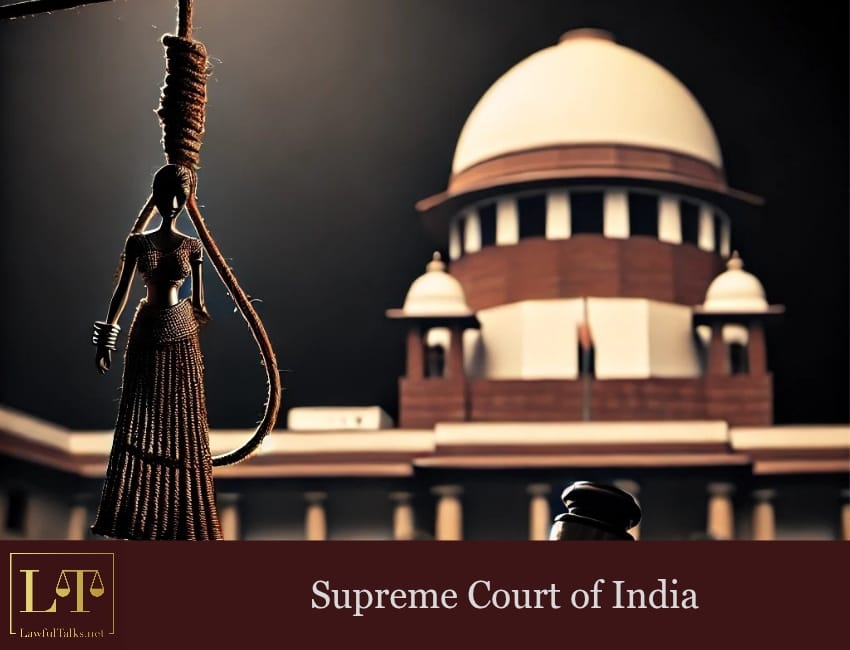Allahabad HC Sets Aside Afzal Ansari's Conviction, Allows Him to Continue as MP

The Supreme Court in a recent judgment emphasized the need for "stricter judicial scrutiny" while granting bail in dowry death cases, especially where evidence suggests persistent harassment over unmet dowry demands. The bench of Justice Vikram Nath and Justice Sandeep Mehta observed that a casual approach in such cases could undermine public confidence in the judiciary and the fairness of the trial process.

"Stricter judicial scrutiny is necessary in matters where a young woman loses her life in her matrimonial home so soon after marriage, particularly where the record points to persistent harassment over unmet dowry demands." the Court remarked.
The case arose from a FIR filed by Appellant, Shabeen Ahmad, brother of the deceased Shahida. According to the First Information Report (FIR) dated January 23, 2024, Shahida was married to Sami Khan (Accused No.1) on February 7, 2022. Shortly after the marriage, the deceased's in-laws – including her father-in-law Mukhtar Ahmad (Accused No.2), mother-in-law Tara Bano (Accused No.3), and sisters-in-law Saba (Accused No.4) and Ayasha (Accused No.5) – allegedly began pressuring her for additional dowry.
The FIR details how the family initially demanded a "Bullet" motorcycle, which was provided in Shahida’s name. However, when the accused later demanded a car, the Appellant, due to financial difficulties, sought additional time. The failure to meet these demands allegedly led to continuous harassment of the deceased.
On January 22, 2024, Shahida’s father received a distressing phone call from Mukhtar Ahmad (Accused No.2), asking him to come immediately. Upon reaching the matrimonial home, the Appellant found Shahida’s body hanging from a ceiling fan with a dupatta around her neck.
The post-mortem report indicated multiple ante-mortem injuries, including traumatic contusions on the head and neck, and a prominent ligature mark. Crucially, the cause of death was identified as "asphyxia due to ante-mortem strangulation," suggesting it was a case of forced strangulation rather than suicide.
Based on the FIR and medical evidence, the Appellant filed a complaint under Sections 498A and 304B of the Indian Penal Code, along with Sections 3 and 4 of the Dowry Prohibition Act, 1961. Recognizing the gravity of the offense, the Sessions Court rejected the bail applications of the accused.
Aggrieved by the Sessions Court’s decision, the accused approached the High Court, which granted bail to all four accused through separate orders in April and May 2024. The High Court cited factors such as the absence of prior criminal records and the fact that some of the accused were women as reasons for granting bail.
Challenging these orders, the Appellant approached the Supreme Court, arguing that the High Court overlooked substantial evidence implicating the accused.
The Supreme Court, while reviewing the High Court’s reasoning, criticized its "mechanical approach" and underscored the need for greater vigilance in such cases.
"Allowing alleged prime perpetrators of such heinous acts to remain on bail, where the evidence indicates they actively inflicted physical, as well as mental, torment, could undermine not only the fairness of the trial but also public confidence in the criminal justice system." the Supreme Court observed
After thorough examination of the evidence, the Supreme Court canceled the bail granted to Mukhtar Ahmad (Accused No.2) and Tara Bano (Accused No.3), holding that the gravity of their alleged involvement warranted continued detention.
However, the Court upheld the bail of Saba (Accused No.4) and Ayasha (Accused No.5), noting that their roles appeared to be relatively less direct. The Court considered the personal circumstances of these accused – one being a recently married woman and the other a student pursuing a Bachelor of Arts degree while working as a teacher.
Despite showing leniency to the sisters-in-laws, the Court refused to exonerate them. All conditions imposed by the High Court remained in effect, and they were required to strictly comply with any further directions issued by the trial court to safeguard the integrity of the proceedings.
Additionally, the Supreme Court directed the trial court to make every effort to conclude the trial promptly, without being influenced by any observations made in the judgment.
Case Title: Shabeen Ahmad VS The State Of Uttar Pradesh & ANR.Crl.A. No. 001051 / 2025
Advocate For Petitioner: Rusheet Saluja
Advocate for the Respondent: Rashmi Singhania[R-2] Rohit K. Singh[R-1]




















































































































































































































































































































































































































































































































































































































































































































































































































